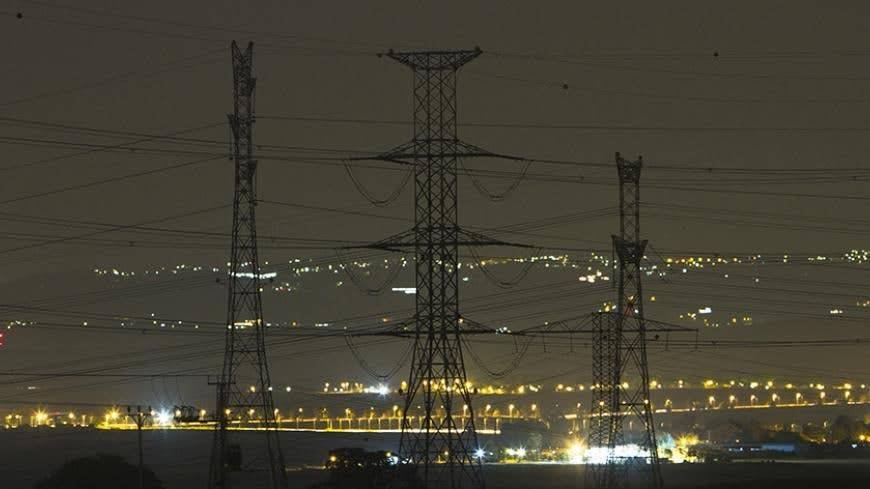Why is Israel facing a crippling energy crisis?
In recent days, Israeli websites have reportedly been subjected to a series of cyberattacks. In the days preceding these cyberattacks, electricity service was disrupted in large areas of the north and south of the Palestinian occupied territories, including the major cities of Tel Aviv, Beit Tikvah, Hadera, Ramat Gan, Rishon LeTsiyon, Acre, and Tiberias. As a result of the power outage in Tel Aviv, traffic lights have stopped working, leading to congestion on many roadways. In response, the local police have urged drivers to avoid crowded areas and seek alternative routes to their destinations.

By: H. Zaïm-Bashi
The recent power outage has resulted in the shutdown of numerous businesses, streets, workplaces, and other institutions. Amidst the blackouts in the occupied territories, the "Anonymous Sudan" hackers made bold statements on their Telegram channel, mocking the Zionist officials:
"Israel, is darkness beautiful? Do you have electricity? Was this a good attack? Do you want to be attacked even more? Do you want your internet and communication to be cut off? Attacking the power system was just for fun."
The recent cyberattacks on the Israeli electricity system shed light on the ongoing challenges facing Israel's power generation sector. In reaction, the Zionist cabinet under Prime Minister Netanyahu has taken action by approving a new law that calls for the creation of electricity storage facilities on Saturdays, a day when the Jewish Orthodox community refrains from using electronic devices due to religious observance.
The United Torah Judaism Party has put forth this proposal as a prerequisite for their involvement in Netanyahu's cabinet. The introduction of this bill coincided with the revelation of Netanyahu's acquiescence to the aforementioned party's demand for a halt to electricity generation in Israel's power facilities. According to analysts, if this happened, it could have led to a colossal loss of 9 billion dollars for the Israeli economy.
According to the Zionist Minister of Energy, the proposed project is expected to cost a staggering 27 million dollars. However, it is being claimed that the implementation of this scheme would not lead to any hike in the electricity tariff for the general public. The Haredi Jewish community has taken a strong stance against the distribution of electricity during the Sabbath period, which spans from Friday night to Saturday night, arguing that even if timers are used to regulate the electricity in their homes, there are still people who work in power plants that generate electricity on Saturdays. The ultra-Orthodox Jewish community has been utilising their generators during Shabbat in order to disrupt the national grid.
Indeed, the need for stored energy is increasing across the globe as a means of harnessing solar energy at night and facilitating its use in electric vehicles.
The recent creation of an Israeli cabinet with a strong religious component has heightened concerns regarding religious movements that defend Jewish laws, such as restrictions on the use of electricity on the Sabbath.
Religious Jews do not turn on electrical appliances on Shabbat, but some systems, such as air conditioners or water heaters, can be turned on beforehand or throughout the day. The Ministry of Energy in Israel has recently reported that certain neighbourhoods are experiencing early activation of generators to meet their daily electricity needs. This not only results in exorbitant expenses but also poses a significant threat to the environment and poses additional risks. As per the statement issued by the ministry, the augmentation of electricity production from renewable sources can be achieved through the implementation of electrical energy storage. There are a growing number of Zionists who are interested in consuming kosher electricity produced on days other than Shabbat.
The state-owned Israel Electric Company is reportedly set to construct a facility worth 120 million shekels ($33 million), which will subsequently be privatised after a period of three years. As per the ministry's recent announcement, the successful implementation of the project could lead to the launch of storage facilities with a capacity of hundreds of megawatts throughout Israel However, no specific timeline has been provided.
The crisis surrounding electricity production in Israel is undeniably complex and deeply rooted. The current plan to construct additional power plants in central Israel has yet to gain traction, leaving little hope for a swift resolution to these pressing issues. The Ministry of Energy's "energy optimisation programme" aimed at curbing electricity consumption has encountered difficulties, while the connection of factories to natural gas has not made any headway.
The Israeli energy sector has issued a warning that failure to construct new power plants in central Israel could result in a severe electricity shortage in the near future. This shortage is projected to occur as early as 2026 or at the start of the following decade. According to the latest electricity sector development plan, Israel is expected to construct an additional 6 to 7 power plants by 2035, with a minimum of two more to be established by 2030. This ambitious plan seeks to bolster Israel's power generation capacity and ensure a steady supply of electricity to meet the growing demands of the populace. Based on the available evidence, it appears highly implausible for such a scenario to materialise.












































